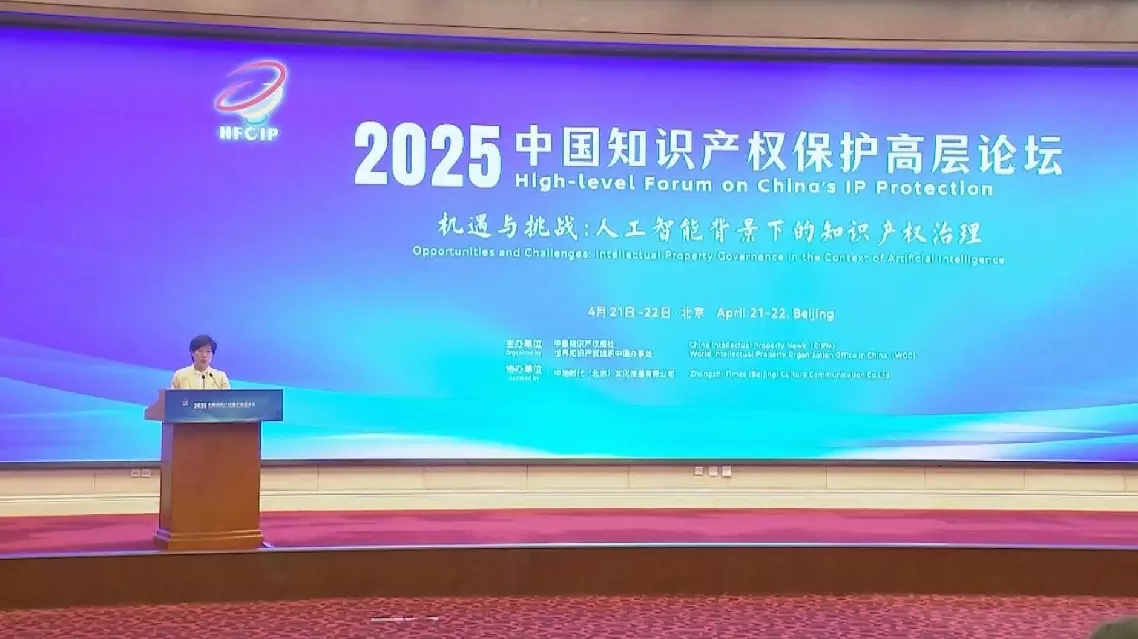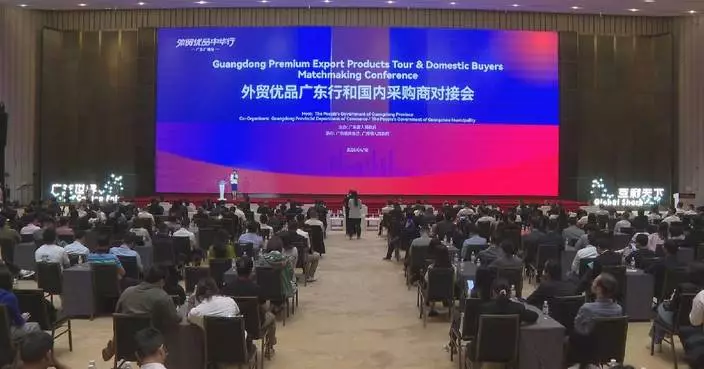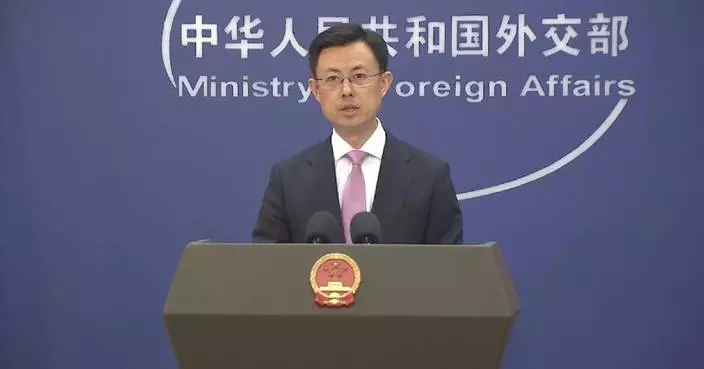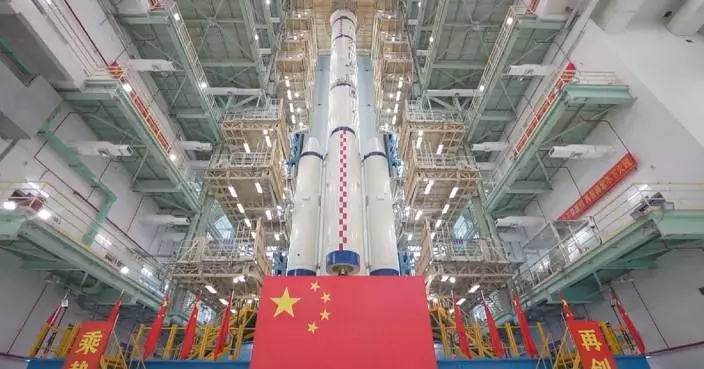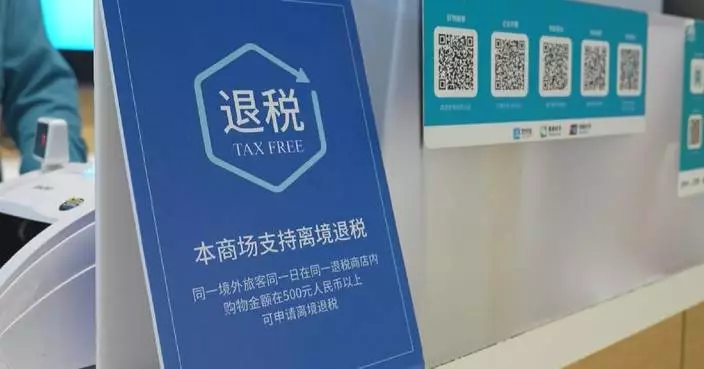Chinese companies are pivoting toward other emerging markets as they look to offset the impact of escalating trade tensions with the United States, while several of China's leading e-commerce giants have also stepped in to help exporters expand their sales on the sizable domestic market.
Earlier this month, U.S. President Donald Trump signed an executive order to implement so-called "reciprocal tariffs" which imposed a 10-percent "minimum baseline tariff" on all imports, before announcing higher rates on certain trading partners.
After days of chaos on the global markets, Trump then moved to suspend these higher rates for 90 days for all countries except China, to whom he has increased the total effective tariff rate to a staggering 145 percent.
Chinese firms are now finding solutions to work around the economic influence of the tariffs but, for many, it is business as usual.
In suburban Shanghai, work is now in full swing at the factory of the Fimilla group, one of the largest companies making electric maternity products in China, as they push ahead with production of one of their bestselling items.
"We now have nine production lines and we can produce around 10,000 breast pumps," said Liu Mingchun , the general manager of the Fimilla (Shanghai) Maternity and Child Articles company.
According to its parent company Snow Bear, the firm has only faced a limited impact from the U.S.-imposed tariffs, largely because its overseas strategy is focused on more than just one single market.
They say they make 90 percent of their overall sales on the Chinese domestic market, while targeting other international regions besides the U.S., which means they are continuing to perform strongly despite the current global challenges.
"The U.S. market forms only 3 to 5 percent of our entire share globally. Our major overseas markets would be ASEAN countries or Southeast Asia, the Middle East, Russia, as well as BRICS countries," said explained Yin Zhifeng, vice president of Snow Bear (Shanghai) Maternity and Child Articles Co., Ltd.
However, for companies that more heavily rely on foreign trade, especially to the U.S. market, the future looks more uncertain. Lao Guoling, an expert on trade and e-commerce, highlighted that while the present difficulties are a major concern, there might also be opportunities for businesses to look elsewhere and tap into previously unheralded markets.
"We always tell our companies about expanding into emerging markets, or into countries along the Belt and Road. If we can move quickly in face of challenges, it is not too late, either to improve the efficiency of our supply chain, or to expand to more emerging markets," said Lao, who is director of the E-Commerce Research Center at the Shanghai University of Finance and Economics.
In addition, China's huge domestic market of 1.4 billion potential consumers represents a strong back up option for Chinese firms to redouble their efforts.
Anticipating the potential fallout from Trump's aggressive trade policies, Chinese e-commerce giant JD.com has said it will purchase 200 billion yuan (over 27 billion U.S. dollars) worth of goods from the country's exporters over the next year to help them sell products domestically.
Meanwhile, e-commerce giant Alibaba said it will open a green channel for exporters via its Freshippo grocery chain, providing support to help them reach Chinese consumers and develop new products tailored to domestic demands, with similar supporting measures being announced by other firms.
"The road to the outside world can't be completely blocked. But it's a reminder for exporters, you need to walk on two legs. You have the overseas market, but also a domestic market. If it's a bit hard to walk into the U.S. market, we can always walk other ways," Lao said.

Chinese firms look to tap into domestic, emerging markets amid US tariff escalation



